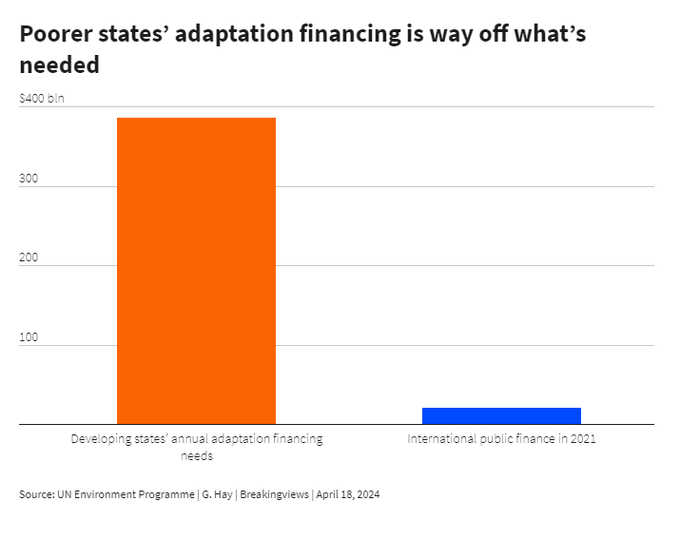Published 20:00 IST, April 18th 2024
UAE is timely reminder of climate plan B urgency
UAE President Sheikh Mohammed bin Zayed Al Nahyan is unlikely to dismiss the heaviest rainfall in his country for 75 years as a one-off.
- Republic Business
- 2 min read

Desert storm. Dubai International Airport is the busiest global air hub, in a country that prides itself as a stable destination for foreign investment and visitors. So it’s quite something to see large parts of one of the United Arab Emirates’ prized assets underwater amid unusually intense rainfall, and tourists left stranded. That said, a robust response by the UAE government may have some spillover benefits for an oft-neglected subsection of the fight against global climate change.
UAE President Sheikh Mohammed bin Zayed Al Nahyan (MBZ) is unlikely to dismiss the heaviest rainfall in his country for 75 years as a one-off. Just before hosting the COP28 global climate conference in December, his government published its National Adaptation Plan, required from every country to assess their vulnerability to climate change. Along with the threat of an average annual temperature rise of between 2 and 3 degrees Celsius starting from 2060, the report warned of a potential doubling of annual rainfall by then in Dubai, Sharjah and the northern emirates.
The Achilles heel of “adaptation” is that it’s seen as the plan B of climate change. It often attracts less investment and attention than mitigation, which focuses on the imperative to slash emissions and prevent warming in the first place. In the Gulf, that may explain why upgrading the UAE and neighbouring Oman’s poor drainage systems has not, until now, seemed a top priority. After the negative press coverage, and comforted by a recent ballooning of net oil export revenues, the UAE now has strong incentives to make adaptation investment a high priority.
That would help the global fight against global warming. As seen with the coverage of scorching summer temperatures in Europe in 2022, the frustrating truth is that it takes visible signs of climate change in their back yards to focus rich countries’ minds. What those minds should focus on is the alarming gap between the cost of preparing low-lying coastal areas in the developing world for the realities of climate change and what richer countries are currently providing – last November the United Nations Environment Programme estimated that gap to be as much as $366 billion a year, with what’s needed amounting to 18 times current flows. If Dubai’s drenching changes that a bit, that would constitute a meaningful silver lining.

Updated 20:00 IST, April 18th 2024